The Delhi High Court Tuesday directed the Centre to respond to a plea by LGBTQ couples who are seeking live streaming of proceedings on a batch of petitions to recognise same-sex marriages under the special, Hindu and foreign marriage laws on the ground that the matter is of great national and Constitutional importance.
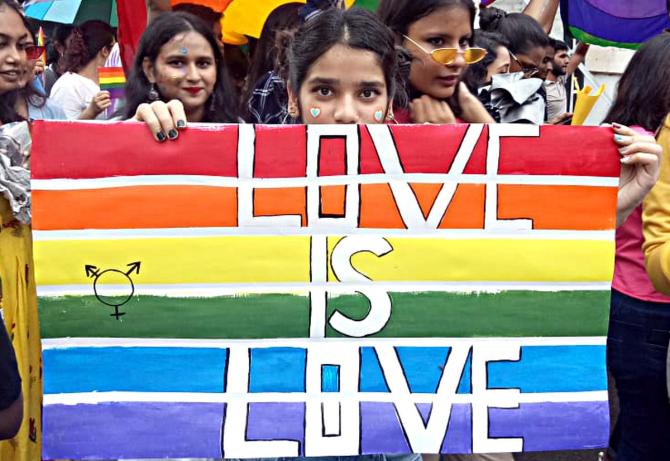
The high court also issued notices on three more fresh petitions by same-sex couples seeking recognition of their marriages, taking the total number of such pleas to eight.
A bench of Chief Justice D N Patel and Justice Jyoti Singh granted time to the Centre's counsel to take instructions on the matter and file replies on the three fresh petitions and the application for live streaming of proceedings. It listed the matter for further hearing on February 3.
The court was hearing a batch of petitions filed by several same-sex couples, seeking a declaration recognising their marriages under the special, Hindu and foreign marriage laws.
Out of the three fresh petitions, the petitioners in two pleas were represented through senior advocate Mukul Rohatgi.
One of the two petitions was filed by two lesbians who have already solemnised their marriage at Varanasi in February 2018 and are seeking recognition of marriage. The other one was filed by a transgender person who has undergone a sex reassignment surgery and entered into a civil union with her husband in South Africa and seeks recognition of the marriage.
The application for live streaming of proceedings was filed in the pending petition of Abhijit Iyer Mitra by Akhilesh Godi, Prasad Raj Dandekar and Shripad Ranade, residents of Karnataka and Mumbai.
It sought direction to the high court registry to make arrangements to live stream the final arguments of this case via YouTube or any other platform.
Senior advocate Neeraj Kishan Kaul, representing the applicants, submitted that in view of the rights involved, live streaming of proceedings is essential as it concerns seven to eight per cent of the total population of the country.
He further said it is a matter of great national and Constitutional importance and live streaming can host a larger population.
Kaul submitted that his clients represent a large section of public who are eagerly looking forward to the outcome of these cases and though a large number of people want to attend the proceedings, they are unable to do so due to limitation of technical platforms.
He said millions of citizens will be keen to watch these proceedings from different nooks and corners of the globe and providing sufficient links during virtual hearings may not be a feasible option and bandwidth constraints will most certainly arise.
He said the Supreme Court and Attorney General for India and the Bar have been in favour of live streaming of proceedings which are in national interest and these petitions fall in this category.
He gave examples of High Courts of Gujarat, Odisha and Karnataka which have taken a lead and formulated rules for live streaming of proceedings.
"The Supreme Court, in Swapnil Tripathi vs. Supreme Court of India, has emphasised that there should be live streaming of court proceedings in matters of Constitutional and national importance which has an impact on the public at large. The right of an interested person to attend court proceedings has been held to be an essential facet of ‘open justice'," the application said.
"Although the applicants are personally interested in the outcome of the present litigation, they are also representative of a large yet marginalized section of the society. Live streaming of the final arguments of the present case will open the doors of this court to that section, which, otherwise will never be able to view the proceedings," it said.
Mitra and three others have contended that marriages between same sex couples are not possible despite the Supreme Court decriminalising consensual homosexual acts and sought a declaration to recognise same sex marriages under the Hindu Marriage Act (HMA) and Special Marriage Act (SMA).
The two other pleas are -- one filed by two women seeking to get married under the SMA and challenging provisions of the statute to the extent it does not provide for same sex marriages and the other filed by two men who got married in the US but were denied registration of their marriage under the Foreign Marriage Act (FMA).
Another petition seeks to allow a foreign-origin spouse of an Overseas Citizen of India cardholder to apply for OCI registration regardless of gender or sexual orientation.
Central government has opposed same-sex marriage on the ground that marriage in India is not just a union of two individuals but an institution between biological man and woman.
It has also said that judicial interference will cause "complete havoc with the delicate balance of personal laws".
Solicitor General Tushar Mehta, representing the Centre, had earlier argued that a ‘spouse' means either husband or wife and ‘marriage' is a term associated with heterosexual couples and there was no need to file a specific reply regarding the Citizenship Act.
He had said there was some misconception of petitioners regarding the Supreme Court's verdict decriminalising consensual homosexual act.
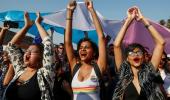
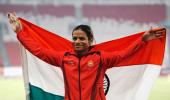

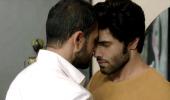




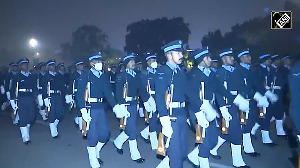
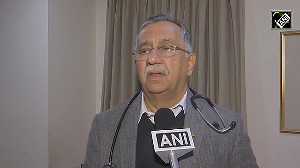
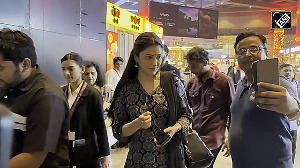
 © 2025 Rediff.com -
© 2025 Rediff.com -